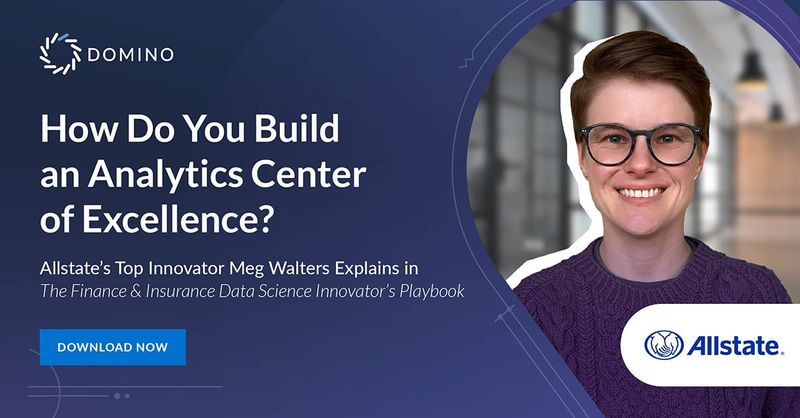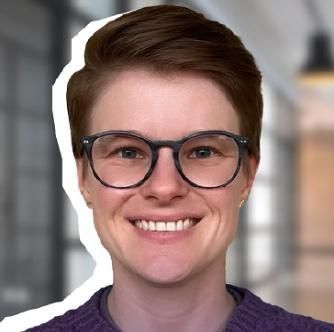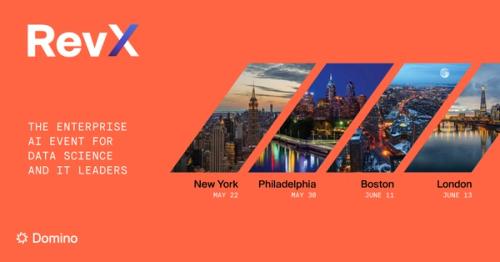Advanced Analytics Innovator: Meg Walters at Allstate
Domino Data Lab2022-12-22 | 5 min read

An AI-focused Center of Excellence (CoE) is a process engine for some of the innovators in Domino’s new Financial Services and Insurance edition of the Data Science Innovator’s Playbook. Functionally, the CoE is a centralized compute resource for data science and advanced analytics that’s managed by one team, but can serve one, five, ten, a hundred, or even thousands of data scientists using models at scale in a large enterprise. A marquee example of a mature CoE is found at Allstate, one of the largest insurers in the U.S. and a major user of data science. Our profiled innovator today is Meg Walters, Senior Manager and Data Science Leader of Allstate’s Analytics Center of Excellence.
Meet Meg Walters, Data Science Leader at Allstate
Meg Walters is a go-to leader for data science at Allstate. She manages the Allstate Analytics CoE to create innovation and evangelize the use of data science throughout Allstate – from ideas, to engagement, to implementation. Allstate’s CoE programs engaged more than 5,000 employees in 2021, which was almost 11% of the company’s workforce.

Walters says her group does a lot of foundational research. It builds out many models, frameworks, insights, even datasets that teams throughout Allstate can use. The concept is to make everything reproducible and reusable. “Anyone else on the team should be able to get up and running with something we did in an afternoon,” Walters says. The COE’s teams work in 12-week cycles, then move on to new studies and projects for a continuous flow of innovations.
Allstate’s Model-Building Factory Spawns Innovation
Allstate has scaled the Analytics CoE into a model-building factory using Domino’s Enterprise MLOps platform to deliver massive productivity gains for data scientists. Teams anywhere in the company can flexibly tap the latest data science techniques such as natural language processing, computer vision, weather, autonomous vehicles, and multi-modal modeling.
The Enterprise MLOps platform solved one of Allstate’s biggest challenges: environment management. “We discovered that when an innovative model was created on somebody’s favorite environment—maybe their laptop—we discovered that sometimes, when you hand something off, it might be two weeks before it can be mirrored and run correctly in a different environment,” says Walters. She credits MLOps as a major factor in taking a model and easily transitioning it to another team. Reproducibility is the enabler for scaling past and present models into new innovations for the business.
Helping its business leaders clearly see how data science could solve important business problems was another hurdle to scaling data science at Allstate. To address this, Walters developed a prototyping team. It builds out small prototypes, which could be tiny minimal working software with some lightweight analytics underneath, or maybe a video demonstrating an experience. These concrete demonstrations enable the business decision-makers to understand how something like multimodal modeling or automatic speech recognition could improve business results.
Download our free eBookto read more details of insights by Allstate’s Walters and other innovators, advisors, and industry experts at the top of their game in data science within the financial services and insurance industries.
Tips for Promoting Data Science at Scale
In addition to examples of several programs for expanding the use of data science at Allstate, Walters also notes four tips on how to promote and innovate data science throughout an enterprise.
- Get some piece of a new product into the hands of the business so they can understand the innovation’s impact and benefit to the business.
- Learn to speak the language of the business, teach the business a little about the language of data science, and get them some experience with the things you’re building.
- Make sure everything you build provides maximum reproducibility and reuse, is generalizable, and could be taken off the shelf years from now and still be perfectly reusable.
- Make time and space for innovation on a regular basis. Provide an environment—maybe a sandbox for innovation that doesn’t touch production systems—where data scientists can experiment.
Conclusion
Walters’ story, like other innovators you can read about in our free eBook, strive to develop a common language for data science with the business it supports. Her team shows business leaders how data science can solve current business challenges. “Now we have lots of business units bringing us use cases, asking questions, and showing a lot more interest and engagement in innovative uses of data science,” Walters says. “And that’s exactly the impact you want from a CoE.” We invite you to download the Data Science Innovator’s Playbook and learn how to accelerate innovation with MLOps in Financial Services and Insurance industries from nine other data science leaders.
Domino powers model-driven businesses with its leading Enterprise MLOps platform that accelerates the development and deployment of data science work while increasing collaboration and governance. More than 20 percent of the Fortune 100 count on Domino to help scale data science, turning it into a competitive advantage. Founded in 2013, Domino is backed by Sequoia Capital and other leading investors.
Subscribe to the Domino Newsletter
Receive data science tips and tutorials from leading Data Science leaders, right to your inbox.
By submitting this form you agree to receive communications from Domino related to products and services in accordance with Domino's privacy policy and may opt-out at anytime.



